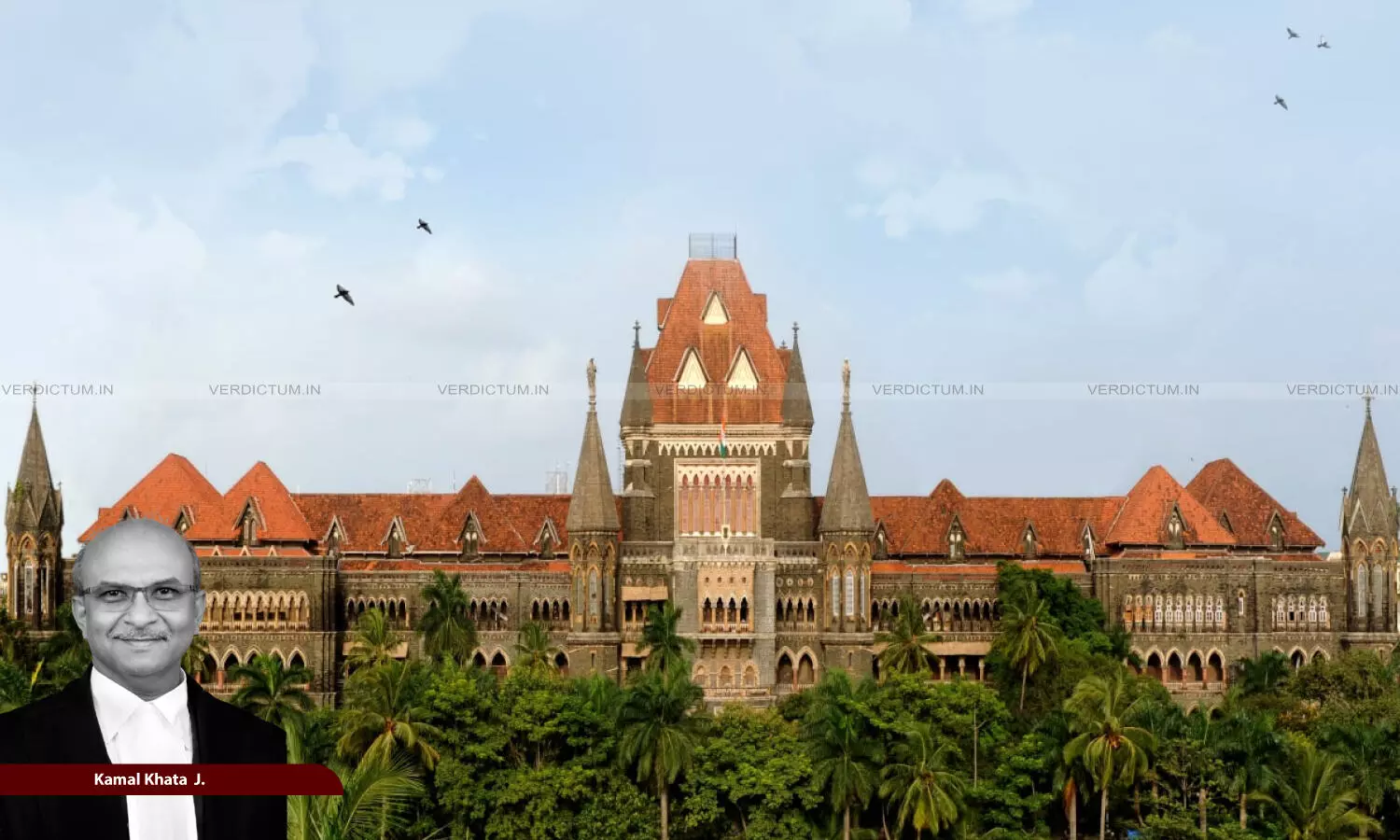
Justice Kamal Khata, Bombay High Court
Misuse Of Judicial Process Warrants Strong Deterrence: Bombay High Court Imposes ₹25 Lakh Costs On Litigant
 |
|The High Court held that the applicant had abused the judicial process by obstructing the due administration of the deceased’s estate and tampering with premises placed under seal by the Court-appointed Administrator.
The Bombay High Court dismissed a chamber summons application seeking intervention in a testamentary suit concerning the estate of a deceased landlady, finding that the application was wholly devoid of merit and intended to delay the proceedings, and imposed costs of ₹25 Lakh on the applicant.
The High Court was hearing an application seeking directions to the Court-appointed Administrator to unseal a portion of the property forming part of the estate, on the ground that it had been unlawfully sealed and that rent was being tendered regularly.
A Bench comprising Justice Kamal Khata, while dismissing the application, observed that, “the Applicant sought to tender rent to the Administrator without having been declared as a tenant.” While stating that “these actions and inactions have unnecessarily consumed the Court’s valuable time on collateral issues, thereby delaying adjudication of the core dispute”, the Bench remarked that “such misuse of judicial process warrants a strong deterrent, which can only be ensured through imposition of exemplary costs.”
Background
The property, part of an estate, consisted of premises located in Mumbai, which had been placed under the supervision of a Court-appointed Administrator. The applicant claimed to be a lawful tenant of a portion of the premises and sought intervention, asserting that the Administrator had sealed the premises without lawful authority.
The applicant submitted that rent had been paid regularly since the early 1990s, and a banker’s cheque towards arrears of rent had been tendered to the Administrator, who refused to accept it. It was contended that the Administrator was only empowered to collect rent and had no authority to seal or dispossess any tenant, and that the sealing of the premises had caused substantial financial hardship.
The Administrator, in his response, submitted that the applicants were not recognised tenants and that rent had not been paid since 2008. He stated that the landlady had never treated the applicants as lawful tenants and that they had described themselves as owners in earlier correspondence. The Administrator further reported that the sealed premises had been tampered with and that articles were unlawfully placed inside without the Court's permission.
Upon the Administrator’s request, a Court Commissioner was also appointed to inspect the property. The report submitted by the commissioner confirmed that the rear door of the sealed premises had been tampered with and that materials were placed inside, corroborating the Administrator’s allegations of interference.
Court’s Observations
The Bombay High Court, while observing that the applicant had no legal right to intervene in testamentary proceedings since probate jurisdiction was confined to determining the validity of the will and administration of the estate, held that any claim of tenancy could only be raised before the Court of Small Causes, which had exclusive jurisdiction under the governing rent laws.
The Court, while examining the material on record, including the Administrator’s report and the Court Commissioner’s inspection, established that the sealed premises had been tampered with and accordingly directed issuance of a show-cause notice to one of the applicants, calling upon her to explain why contempt proceedings should not be initiated for interference with sealed property.
The Bench further observed that such conduct had delayed the probate proceedings and burdened the Court’s time with extraneous disputes. It noted that the applicants’ actions “not only delayed the progress of the Suit but have also subjected the Court Administrator to unnecessary hardship and difficulty in administering the deceased’s estate”, while stating that “such conduct cannot be permitted”.
Referring to the Supreme Court’s decision in Dnyandeo Sabaji Naik v. Pradnya Prakash Khadekar (2017), the Bombay High Court reiterated that exemplary costs should be imposed to deter frivolous or obstructive litigation, holding that, “the imposition of exemplary costs is a vital tool to deter and weed out frivolous litigation, as well as to prevent its recurrence.”
"In these circumstances, the Chamber Summons stands dismissed with exemplary costs of Rs.25,00,000/- to be paid to the Armed Forces Battle Casualties Welfare Fund within a period of four weeks from the date of uploading of this Judgment on the website of the Bombay High Court", the Bench Concluded.
Conclusion
Holding the applicant’s conduct as obstructive and unjustified, the Court dismissed the chamber summons with exemplary costs, directing that the amount be deposited within four weeks. The Bench further directed that in case of non-compliance, the Collector of Mumbai shall attach the applicant’s property and ensure recovery of the amount for deposit in the Fund.
Cause Title: Auto Credit Corporation & Another v. Mahesh Mithalal Trivedi & Others (Neutral Citation: 2025:BHC-OS:16896)
Appearances
Applicant: Advocate Shaista Pathan
Respondents: Advocates Vaishali Kasbe, Ketan Trivedi, Preet Chheda, Swayam S. Chopda.